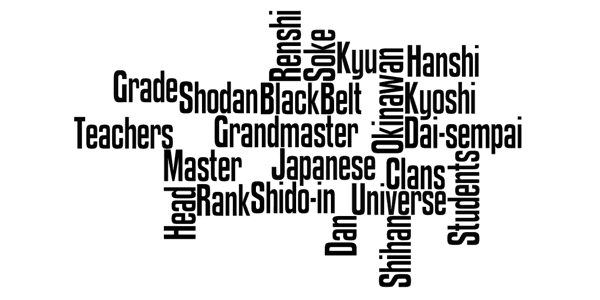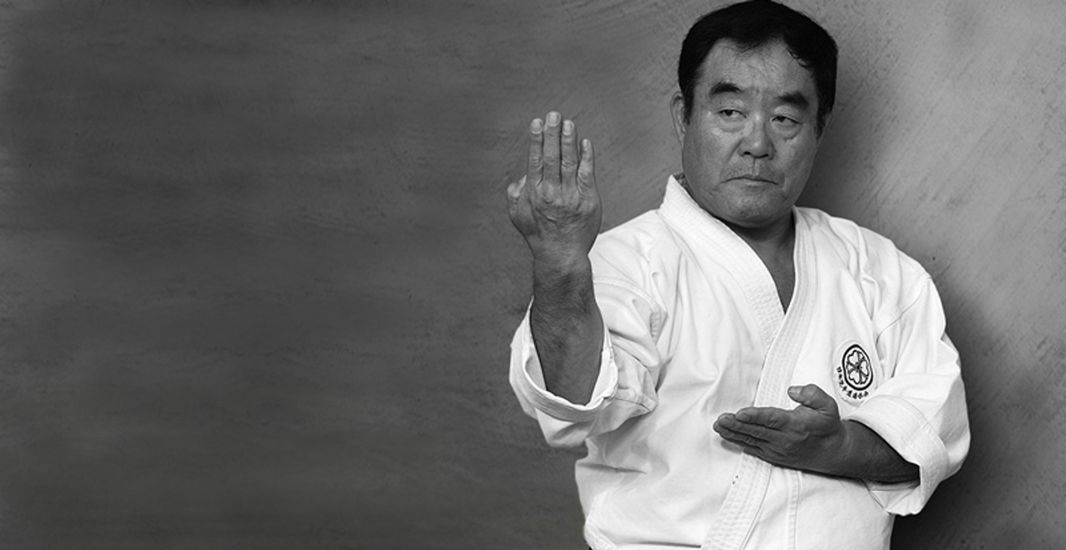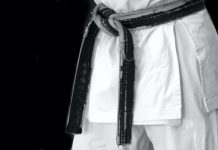 A few months ago, I attended a martial arts convention where there were large number of well-known practitioners of all styles, as well as eager newcomers to the arts. As part of the convention, a number of instructors took the stage to demonstrate their skills and discuss some aspect of the system they were teaching. What amazed me most about this was not the skill of the demonstrators, they were all superb, but the introductions and the martial arts titles being used.
A few months ago, I attended a martial arts convention where there were large number of well-known practitioners of all styles, as well as eager newcomers to the arts. As part of the convention, a number of instructors took the stage to demonstrate their skills and discuss some aspect of the system they were teaching. What amazed me most about this was not the skill of the demonstrators, they were all superb, but the introductions and the martial arts titles being used.
Of the dozens or so people I watched, a few were introduced as senseis, a large number label themselves as masters, some were grand-masters, one was introduced as a shihan and one went by the title of hanshi. I really didn’t pay much attention to these labels until I was walking around and spotted Fumio Demura, one of the most respected karate senseis in the world. As I approached him, I saw young man walk up to him, bow deeply and then ask him, “Sir, what should I call you? Master, shihan, soke?” Demura smiled and replied, “Just call me sensei.” I watched in amazement at this exchange. He was, without a doubt, a master of karate, but with humility he was happy to be called a sensei unlike so many American martial artists who find it necessary to label themselves with honorific titles they rarely deserve.
I have been teaching and training in the martial arts for over 50 years, and I still cringe when someone greets me as master Farkas. I’m a sensei, yes. I spent most of my life involved in the arts, but does that make me a master? In the last 20 years, I have noticed how many American martial artists have become masters or grand-masters and how many have taken on the title of shihan or even soke. Why? And who gave them the title – some organization that is looking to further their prestige.
I have attended a number of martial arts award ceremonies, and I am always amazed when a grandmaster so-and-so is called to accept an award. The person who gets up is a man in his mid-30s. I have no objection to his award, but how do he justify that title at such a young age. At these events, I find it amazing the number of masters, grand masters, shihans, kyoshis, hanshis, professors and sokes there are in this country. Now, undoubtedly, there are numerous individuals world wide who deserve some of these titles, but these are few and far between, and interestingly they are mostly called senseis by their followers.
When I was studying judo at the Kodokan in Tokyo, I was privileged to train with Kotani sensei, who at the time was a ninth dan, but I never heard anyone refer to him as shihan or hanshi. He was Kotani sensei. It was the same at the JKA where I trained under Nakayama sensei. No honorific titles were used; he was simply sensei.
Many years ago, when John Corcoran and I were writing the Encyclopedia of Martial Arts, we both agreed that of the over one thousand biographies in the book, we would rarely use the title master. We never labeled anyone a grandmaster or shihan or hanshi. Even Gichin Funakoshi was introduced as a karate master. We simply gave people credit for their accomplishments and honorific meaningless titles were unnecessary.
Today, of course, when I see biographies and books, I notice the large number of martial artists with honorific titles, deserved or not. Unfortunately, many American senseis believe that they must have at least a master in front of their names, otherwise they are not being honored properly. There is much ego in the martial arts world, but I think it’s time everyone realize that martial arts titles don’t make the people; it’s their accomplishments that count.











